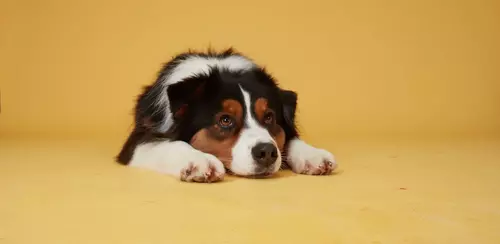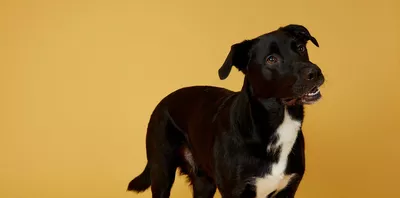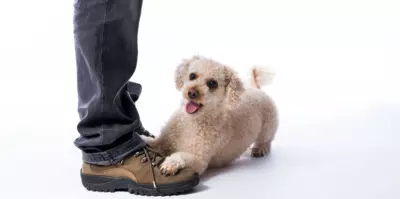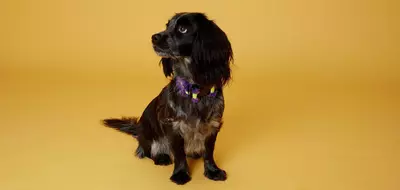Do Dogs Get Jealous?
- 01 Feb 2024
- 4m read

Yes, dogs can get jealous. Dogs are known for their strong bonds with their family and protection against their possessions, such as food and toys.
Do Dogs Get Possessive Over Owners?
Yes, dogs can get possessive of their owners. This possessiveness often stems from their natural instincts to form strong bonds and protect members of their perceived pack.
How Do Dogs Act When Jealous?
When dogs feel jealous, they may adjust their behaviour in kind. This will most commonly present itself in an array of attention-seeking behaviours, such as:
Nudging or pawing at their owner
Wiggling their way in between their human and another person/pet
Tense body posture
Growling
Narrowed eyes (and side eye)
Guarded stance
Why is My Dog Jealous?
Dogs, like humans, can experience jealousy as part of their natural emotions. It often stems from a strong bond with their humans and a desire for attention.
Various things can contribute to jealousy in dogs, such as:
Affection
If a dog perceives that another person or pet is receiving more affection from their owner, they may feel jealous and act to regain that attention.
Territorial instincts
Dogs have a territorial nature, and they may become possessive of their owners as part of their pack. Introducing new people or pets into the home can trigger feelings of competition.
Resource guarding
Dogs may exhibit jealousy when it comes to their possessions, such as toys and food. This behaviour can be a way for them to protect what they see as valuable resources.
Changes in routine
Dogs thrive on routine and can become uneasy or jealous when there are significant changes. This could include changes in the household, schedule, or the introduction of a new family member.
Understanding the triggers for your dog's jealousy can help you deal with this behaviour more effectively. Providing consistent love, attention, and positive reinforcement, while ensuring fair treatment among all pets, can help minimise feelings of jealousy.
Will My Dog Get Jealous If I Get Another Dog?
Introducing a new dog into your home can potentially trigger feelings of jealousy in your existing dog.
Dogs are creatures of habit and can be territorial, so changes in their environment, especially the introduction of a new dog, may lead to various emotions, including jealousy.
Here’s a few tips to help minimise potential jealousy and make the adjustment run more smoothly.
Gradual introduction
Introduce your new dog to your existing dog gradually and in a neutral space where neither of them feel territorial, such as the park. Allow them to get acquainted without feeling threatened.
Equal attention
Ensure that you continue to give your existing dog plenty of attention and affection. This helps them feel secure and less likely to become jealous.
Separate spaces
Provide separate spaces for each dog, including separate feeding areas and beds. This helps prevent conflicts and gives each dog their own space that they can call their own.
Fair treatment
Treat both dogs fairly and equally to avoid triggering feelings of competition or jealousy. This includes distributing treats, toys, and attention evenly.
Positive reinforcement
Use positive reinforcement to reward good behaviour and interactions between the two dogs. This encourages a positive association and reduces the likelihood of jealousy-driven behaviours.
It's important to be patient during the adjustment period and monitor your dogs' interactions closely. With time, proper introductions, and consistent positive reinforcement, many dogs can adapt to having a new furry companion without significant issues.
How to Reassure a Jealous Dog
Reassuring a jealous dog involves providing extra attention, positive reinforcement, and creating a balanced environment. Here are some tips to help reassure your jealous dog.
Individual attention
Spend quality one-on-one time with your jealous dog. This reinforces your bond and assures them that they are still valued and loved.
Maintain routine
Dogs thrive on routine, and sudden changes can cause stress. Stick to a consistent schedule for feeding, walks, and playtime to provide a sense of stability.
Create positive associations
When introducing new elements, such as a new dog or changes in the environment, associate these changes with positive experiences. Use treats, toys, and positive reinforcement to create positive associations.
Provide safe spaces
Ensure that your jealous dog has access to quiet and safe spaces where they can retreat if they feel overwhelmed or stressed.
Professional help
If jealousy leads to problematic behaviours or if you're having difficulty managing it, consider seeking advice from a professional dog trainer or behaviourist.




.png)